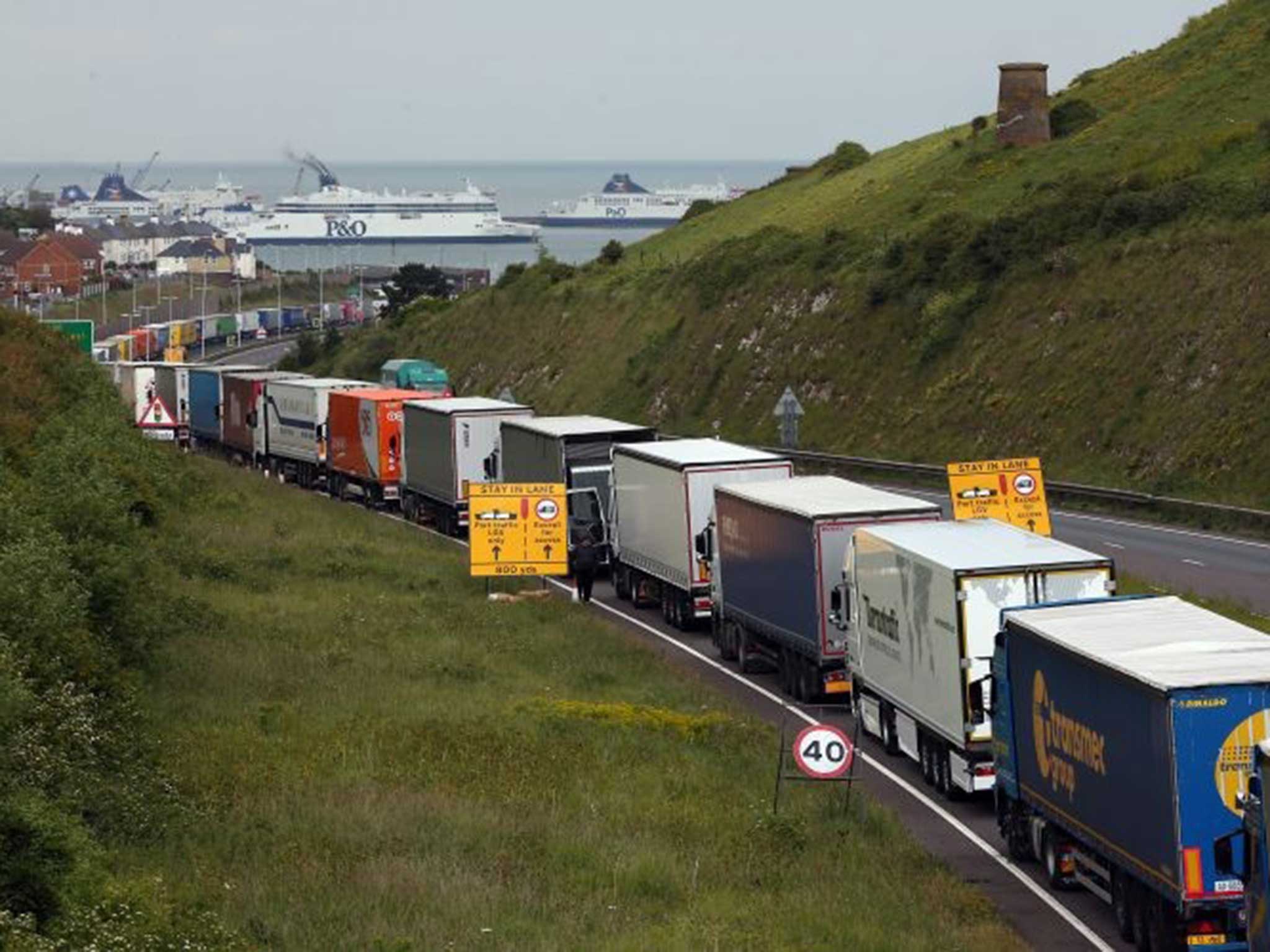Britain's economic recovery from coronavirus will be slowed for two years by Brexit, EU forecasts
Businesses will have to adjust to new trading conditions in the middle of a pandemic

Your support helps us to tell the story
From reproductive rights to climate change to Big Tech, The Independent is on the ground when the story is developing. Whether it's investigating the financials of Elon Musk's pro-Trump PAC or producing our latest documentary, 'The A Word', which shines a light on the American women fighting for reproductive rights, we know how important it is to parse out the facts from the messaging.
At such a critical moment in US history, we need reporters on the ground. Your donation allows us to keep sending journalists to speak to both sides of the story.
The Independent is trusted by Americans across the entire political spectrum. And unlike many other quality news outlets, we choose not to lock Americans out of our reporting and analysis with paywalls. We believe quality journalism should be available to everyone, paid for by those who can afford it.
Your support makes all the difference.Britain's economic recovery from coronavirus will be made harder by extra damage inflicted to it by Brexit, Brussels has said.
In its regular autumn economic forecast, the European Commission warned that the new trading arrangements adopted by Boris Johnson will "slow down the recovery considerably" for two years.
"Business investment is expected to take longer to recover due to the longer-term effects of the pandemic and the need to adapt to the new, significantly less beneficial trading relations with the EU," the forecast warned.
It comes after the UK's own National Audit Office predicted that leaving the single market and customs union on 31 December would cause disruption to trade whether a free trade agreement is signed or not before then.
Boris Johnson and European Commission president Ursula von der Leyen are set to take stock of talks in a telephone conversation on Saturday.
EU diplomats say chief negotiator Michel Barnier told them privately that discussions are not currently on a trajectory to reach a deal. Both sides have been negotiating intensively in London and Brussels to strike a deal, with an assumed deadline of the middle of November to avoid a no-deal.
The European Commission says the economic Brexit scheduled for 31 December will have some effect on the EU's economy, with the impact most keenly felt in Ireland and other members states closely linked to Britain.
For the Republic, the change in trade relationship is "expected to reduce trade and GDP growth in particular in 2021," the Commission predicted.
But in line with other economic forecasts, the effect is expected to be most acute on the UK, where a trade agreement would only partially offset some of the damage.
"The assumed move to this new trade relationship, which will be significantly less beneficial than the current situation, is expected to slow down the recovery considerably in 2021 and 2022," it says
"Business investment, which has already been weak in the past years, is expected to rebound only slowly as businesses have to deal with the consequences of the pandemic and the new trade relations with the EU.
"Job losses and lower real wages are expected to negatively affect private consumption. Government consumption is forecast to contribute positively to growth over the next two years.
"Overall, GDP is expected to increase by 3.25 per cent in 2021, and by 2 per cent in 2022. In the fourth quarter of 2022, UK GDP is projected to still be 5 per cent below the level of the fourth quarter of 2019.
"A potential trade agreement between the EU and the UK constitutes an upside risk for the forecast, whereas a less smooth transition to the new trade relationship would additionally weigh on growth."

Join our commenting forum
Join thought-provoking conversations, follow other Independent readers and see their replies
Comments